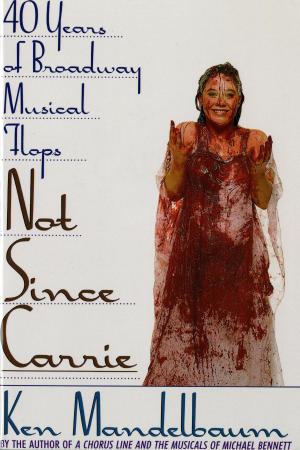A Chance in Hell
The Men Who Triumphed Over Iraq's Deadliest City and Turned the Tide of War
Biography & Memoir, Historical, Nonfiction, History, Military| Author: | Jim Michaels | ISBN: | 9781429950510 |
| Publisher: | St. Martin's Press | Publication: | June 22, 2010 |
| Imprint: | St. Martin's Press | Language: | English |
| Author: | Jim Michaels |
| ISBN: | 9781429950510 |
| Publisher: | St. Martin's Press |
| Publication: | June 22, 2010 |
| Imprint: | St. Martin's Press |
| Language: | English |
The riveting account of how one brigade turned Iraq's most violent city into a model of stability
Colonel Sean MacFarland's brigade arrived in Iraq's deadliest city with simple instructions: pacify Ramadi without destroying it. The odds were against him from the start. In fact, few thought he would succeed. Ramadi had been going steadily downhill. By 2006, insurgents roamed freely in many parts of the city in open defiance of Iraq's U.S.-backed government. Al-Qaeda had boldly declared Ramadi its capital. Even the U.S. military acknowledged the province would be the last to be pacified.
A lanky officer with a boyish face, MacFarland was no Patton. But his soft voice masked an iron will and a willingness to take risks. While most of the American military was focused on taming Baghdad, MacFarland laid out a bold plan for Ramadi. His soldiers would take on the insurgents in their own backyard. He set up combat outposts in the city's most dangerous neighborhoods. Snipers roamed the dark streets, killing al-Qaeda leaders and terrorist cells. U.S. tanks rumbled down the streets, firing point blank into buildings occupied by insurgents. MacFarland's brigade engaged in some of the bloodiest street fighting of the war. Casualties on both sides mounted. Al-Qaeda wasn't going to give up easily. Ramadi was too important. MacFarland wasn't going to back down either.
The two sides had fought to a stalemate.
At least until Sheik Abdul Sattar Bezia al-Rishawi emerged. A minor tribal leader, Sheik Sattar had earned his reputation as a smuggler. He carried a large six-shooter on his hip and had a taste for whiskey. But he hated al-Qaeda and was watching MacFarland's brigade as they battled militants toe-to-toe. This was a different group of Americans, Sattar thought. Sattar approached MacFarland and said he was ready to join with the Americans and fight al-Qaeda. Other officers might have kept their distance. MacFarland didn't hesitate. He promised Sattar his support.
What followed was one of history's unlikeliest -- and most successful -- partnerships. Together, the Americans and Sattar's growing band of fighters drove al-Qaeda from Ramadi. A Chance in Hell is compelling tale of combat leadership and how a handful of men turned the tide of war at a time when it looked most hopeless.
The riveting account of how one brigade turned Iraq's most violent city into a model of stability
Colonel Sean MacFarland's brigade arrived in Iraq's deadliest city with simple instructions: pacify Ramadi without destroying it. The odds were against him from the start. In fact, few thought he would succeed. Ramadi had been going steadily downhill. By 2006, insurgents roamed freely in many parts of the city in open defiance of Iraq's U.S.-backed government. Al-Qaeda had boldly declared Ramadi its capital. Even the U.S. military acknowledged the province would be the last to be pacified.
A lanky officer with a boyish face, MacFarland was no Patton. But his soft voice masked an iron will and a willingness to take risks. While most of the American military was focused on taming Baghdad, MacFarland laid out a bold plan for Ramadi. His soldiers would take on the insurgents in their own backyard. He set up combat outposts in the city's most dangerous neighborhoods. Snipers roamed the dark streets, killing al-Qaeda leaders and terrorist cells. U.S. tanks rumbled down the streets, firing point blank into buildings occupied by insurgents. MacFarland's brigade engaged in some of the bloodiest street fighting of the war. Casualties on both sides mounted. Al-Qaeda wasn't going to give up easily. Ramadi was too important. MacFarland wasn't going to back down either.
The two sides had fought to a stalemate.
At least until Sheik Abdul Sattar Bezia al-Rishawi emerged. A minor tribal leader, Sheik Sattar had earned his reputation as a smuggler. He carried a large six-shooter on his hip and had a taste for whiskey. But he hated al-Qaeda and was watching MacFarland's brigade as they battled militants toe-to-toe. This was a different group of Americans, Sattar thought. Sattar approached MacFarland and said he was ready to join with the Americans and fight al-Qaeda. Other officers might have kept their distance. MacFarland didn't hesitate. He promised Sattar his support.
What followed was one of history's unlikeliest -- and most successful -- partnerships. Together, the Americans and Sattar's growing band of fighters drove al-Qaeda from Ramadi. A Chance in Hell is compelling tale of combat leadership and how a handful of men turned the tide of war at a time when it looked most hopeless.















